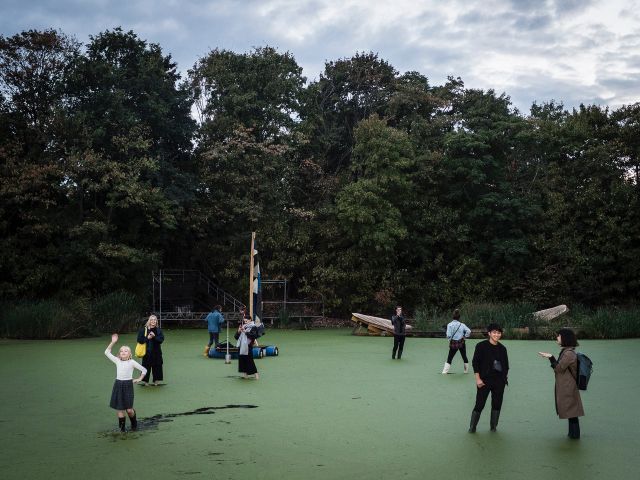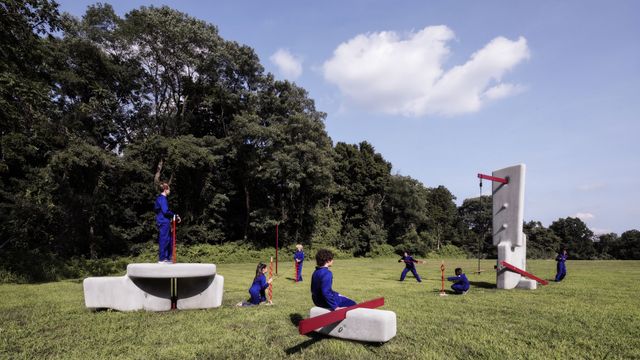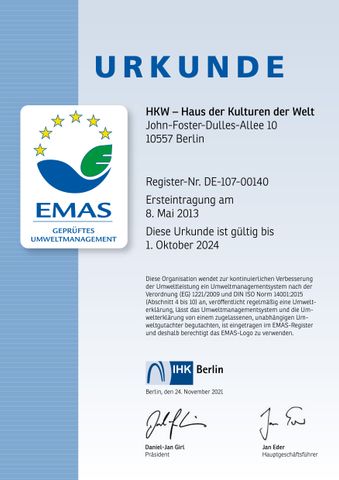Sustainable Culture
As a place for contemporary research, HKW feels all the more committed to the environment, to protecting resources and conserving energy. How, in these times of global transformation processes, can cultural production be organized to be sustainable? Since the launch of the long-term project on the Anthropocene in 2013 at the latest, Haus der Kulturen der Welt has dedicated itself to the relationship between climate, humans and technologies and is asking questions about planetary change.
In what ways can cultural institutions conserve resources while at the same time promoting knowledge? HKW considers social and ecological aspects in all of its processes: in the use of the building, the conception and implementation of events and the involvement of staff and visitors.
HKW has been EMAS-certified since 2013, buys green electricity and meets the criteria for sustainable environmental management. As a result, only recyclable materials are used for exhibition surfaces, walls and room installations. The circulation of print publications was reduced using environmentally-friendly raw materials. The steel and glass façade was renewed and all rooms were converted to LEDs. Employees have access to company bicycles and electric cargo bikes as well as the VBB job ticket. The first in-house charging station for electric vehicles is located at HKW. Trips within Germany and to nearby European countries are made by train or car, unavoidable air travel is offset in cooperation with MoorFutures: A drained bog near Freienhagen is rewetted and permanently binds CO2 in the soil. On the roof terrace and in the East Garden, organic crop beds were created together with the Kreuzberg Princess Gardens. By 2030, the entire administration will be reorganized to be climate-neutral, thus also strengthening society’s awareness of permanently responsible use of all resources.



